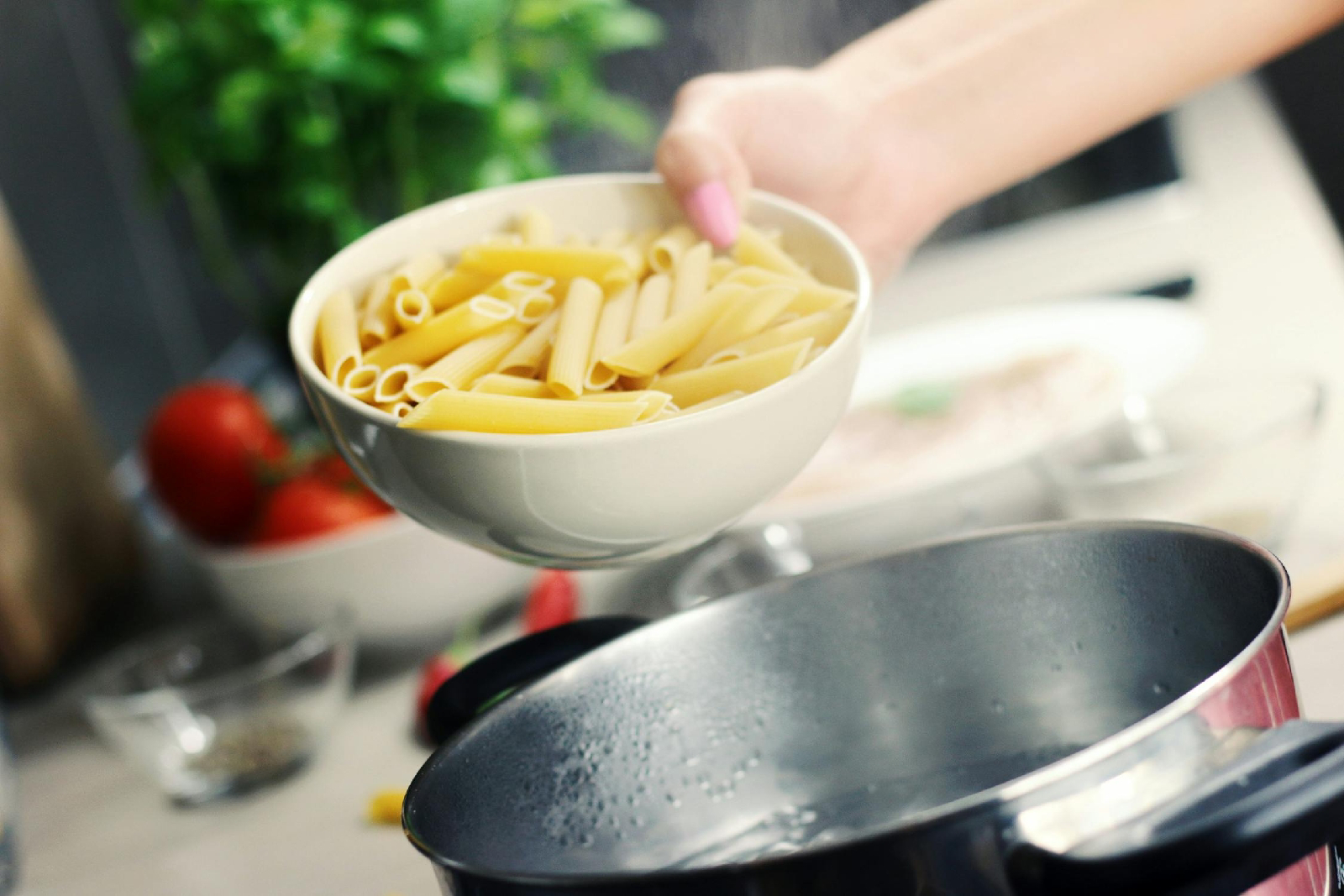While this might seem obvious, it’s been coming up more and more in my life lately and I feel like it’s something I should talk about again.
My son is trying to do more cooking at home, and I’ve been getting a few calls lately about how to do things in the kitchen. None of my kids really had much interest in cooking growing up, although I made sure they were capable of feeding themselves the basics and were able to follow directions on a box mix of whatever.
But, apparently this is more common than I realized, and I’ve heard people my age and older say they really don’t like cooking, aren’t interested, or don’t know how to make things that taste good.
I’ll be the first to admit, my cooking skills developed because 1.) I was a picky eater; 2.) we were broke and couldn’t eat out all the time; 3.) there were foods I wanted to try that my family had zero interest in eating.
My mom taught me the basics as a teenager, and I learned to follow recipes and watched a LOT of the Food Network in my 20’s and 30’s. There have been MANY experiments over the years. Some were triumphs, and even MORE failures.
Now, as I’ve become more aware of the importance of cooking at home for a healthier lifestyle, I’m also more aware that not everyone understands how deeply beneficial cooking at home can be.
Healthier Choices
One of the biggest perks of cooking at home is having control over ingredients. When you cook for yourself, you decide what goes into your meals: more veggies and protein; processed foods are limited or eliminated (depending on your choices); organic, kosher, gluten-free, or other health options are available; and no mystery ingredients you can’t pronounce. Restaurant meals and pre-packaged foods can be loaded with excessive salt, sugar, unhealthy fats, and preservatives, which can sneak up on your health over time.
Cooking at home lets you prioritize fresh, whole ingredients that nourish your body. You can incorporate more of what works for you and experiment with meals that support your overall health. Plus, you can control portion sizes—something that’s harder to do when eating out.
Saves You Money
There’s no denying that eating out can drain your wallet. Even fast food, which used to be seen as the "cheap" option, adds up quickly, especially when feeding a family. Groceries may seem expensive at times, but when you break down the cost per meal, cooking at home is almost always the more budget-friendly choice.
My son is learning this lesson. When we talked about recipes he wanted to try, cost came up. I told him to add up the cost of his last meal out with his girlfriend (fast food), and to look at how many groceries he was getting for the same price. Even though in his HEAD the groceries seemed more expensive, when he actually broke down the number of meals he could make for the price of one meal out, the math did all the talking.
So, think about the cost of a single restaurant meal versus buying ingredients for multiple meals at home. A single dinner out could easily cost what you'd spend on groceries for several home-cooked dinners. Buying ingredients in bulk or on sale, meal prepping, and using leftovers (reduces food waste) are ways to stretch your grocery budget while eating well.
You Can Make What You Want, How You Want It
When you cook at home, you have the freedom to make meals exactly how you like them. This is absolutely an issue for me and my daughter. Not wanting certain things on/in my food, and trying to order without them can be a nightmare. Think, not wanting cheese or mayo on a burger that is normally made with both of those ingredients at a fast-food chain.
Cooking at home also allows for creativity. You can tweak recipes to fit your taste preferences, dietary needs, or even experiment with flavors you’ve never tried before. If you're avoiding allergens, following a specific diet, or simply prefer homemade versions of restaurant favorites, you have complete control over what goes on your plate.
And I’ll admit I’m weird, but I get a huge kick out of making a recipe as good as (or better than) a restaurant version.
Cooking is a skill that evolves over time, and the more you practice, the more confident you become. It really is for everyone. It’s not just for chefs or “foodies”. It can positively impact your health, finances, and overall enjoyment of food. Even if it feels intimidating at first, time, patience, and a willingness to experiment will make it easier.
Start simple. Take it slow.
Whether you’re new to the kitchen or continuing to sharpen your skills, the basics of cooking are always worth learning.
www.thehiddenpoweroffood.com




Comments
Post a Comment